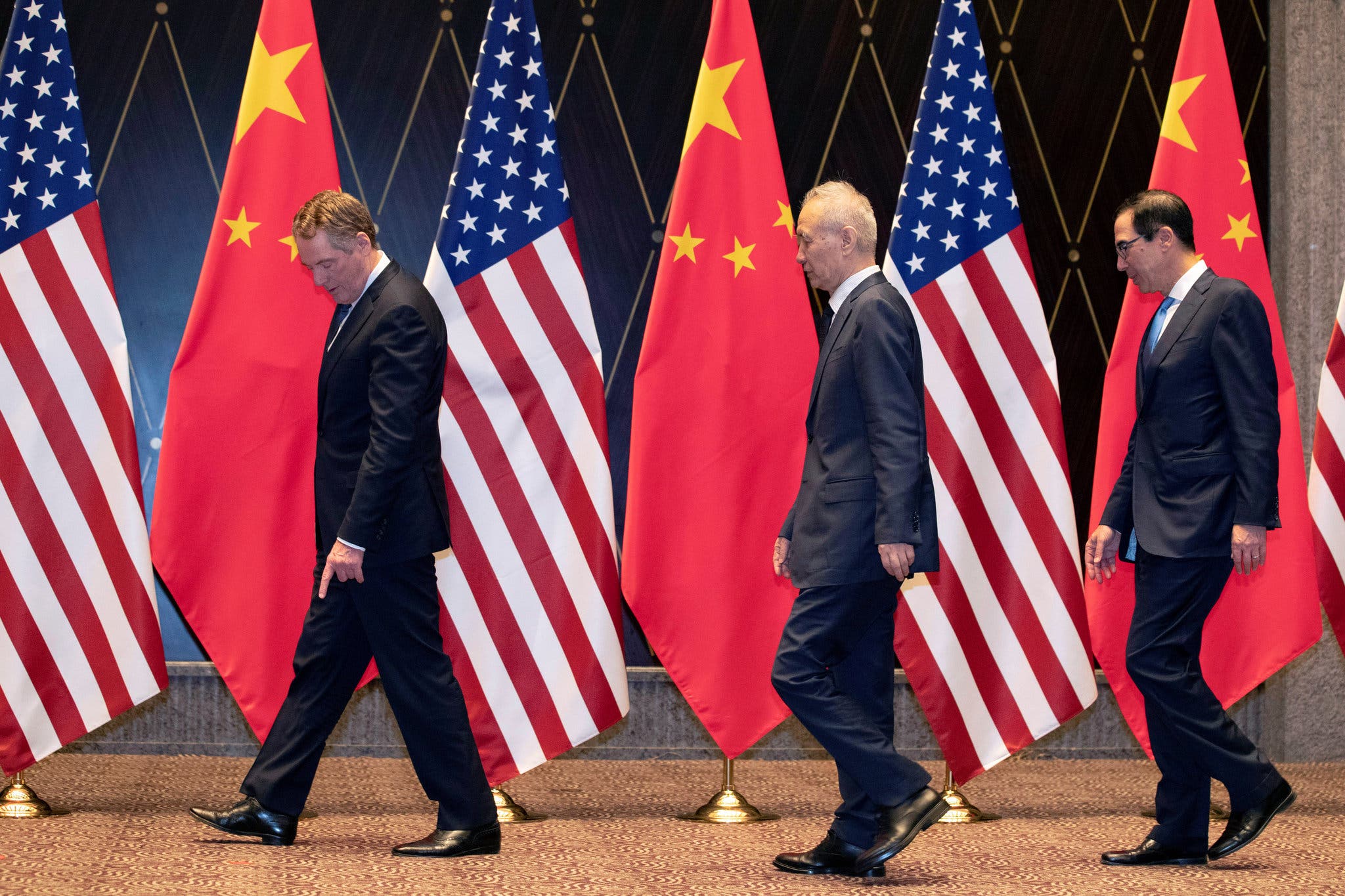Key Advisors Help China Finalize US Trade Agreement

Table of Contents
Identifying China's Key Trade Advisors
Within the complex structure of the Chinese political and economic system, a select group of key advisors plays a crucial role in shaping trade policy and negotiating agreements with other nations. These advisors, often senior officials with extensive experience in economics and international relations, wield significant influence in the decision-making process. Their expertise and insights are essential in navigating the challenging landscape of international trade negotiations. Their actions directly influence the outcome of agreements like the US-China trade deal. Identifying these key decision makers is vital to understanding the intricacies of the agreement.
Here are three prominent examples of advisors who significantly influenced China's approach to US trade negotiations:
-
Advisor A: Liu He – Vice Premier of the State Council. His extensive experience in economics and finance made him a key player in previous trade talks, wielding considerable influence due to his direct access to the highest levels of government. His expertise in economic policy proved invaluable in navigating the complexities of the agreement. His role included devising negotiation strategies and ensuring the implementation of agreed-upon policies.
-
Advisor B: Zhong Shan – Former Minister of Commerce. As the head of China's trade ministry, Zhong Shan was deeply involved in the day-to-day negotiations. His experience in bilateral trade and his understanding of China's domestic economic needs played a crucial part in shaping the Chinese negotiating position. His focus was on protecting Chinese industries while securing beneficial concessions from the US.
-
Advisor C: Wang Yi – State Councilor and Minister of Foreign Affairs. While not solely focused on trade, Wang Yi’s influence on the broader geopolitical context of US-China relations significantly influenced trade negotiations. His diplomatic expertise helped frame the trade talks within the larger diplomatic strategy. This broad perspective ensured that trade negotiations aligned with China's overall foreign policy goals.
The Advisors' Strategies and Impact on the Agreement
The strategies employed by these Chinese trade negotiators were multifaceted and involved a delicate balance between securing favorable terms for China and maintaining a constructive dialogue with the US. Their strategies included:
-
Analysis of specific concessions made by China: These often involved commitments to increase imports of US goods and services, addressing concerns about intellectual property rights, and opening up certain sectors of the Chinese economy.
-
Evaluation of the advisors' success in achieving China's goals: While some key objectives were met, others remained unfulfilled, suggesting a complex interplay of political and economic factors influencing the ultimate outcome. The extent of success is still being debated and analyzed.
-
Discussion of any potential long-term impacts of the advisors' strategies: The long-term consequences, including the impact on bilateral trade relations and global economic stability, are still unfolding and will require further observation. The advisors' strategies will have long-term implications for the future trade landscape.
The Role of Internal Political Dynamics in Shaping the Agreement
Understanding the Chinese political system is crucial to comprehending the complexities of trade negotiations. The advisors' roles extended beyond mere negotiation; they had to navigate internal political dynamics, seeking consensus among various factions within the Chinese government. Internal negotiations were crucial in forging a unified approach.
-
Discussion of potential internal factions and their viewpoints on the US trade deal: Different departments and agencies may have had conflicting interests and priorities, requiring skillful mediation by the key advisors.
-
Analysis of how the advisors balanced different interests within the government: Their success in achieving a degree of internal consensus was essential to the successful conclusion of the negotiations. Consensus-building was a key element of their strategy.
-
Highlight any instances where internal political considerations influenced the negotiation process: Political considerations sometimes led to compromises or concessions that may not have been purely economically driven.
The Future Implications of the US-China Trade Agreement (and the role of advisors)
The US-China trade agreement has profound implications for the global economy. The agreement's economic impact will be felt for years to come, and the role of key advisors will continue to be important in guiding the implementation and monitoring of the agreement.
-
Potential economic benefits and drawbacks for both China and the US: The agreement has the potential to increase trade flows, boost economic growth, and create new market opportunities. However, challenges remain, requiring ongoing attention and collaboration between both countries.
-
The advisors' role in ensuring the agreement's successful implementation: The advisors' expertise and influence will be vital in ensuring that both sides comply with the terms of the agreement and resolve any disputes that may arise.
-
Predictions for the future trajectory of US-China trade based on the current advisors' influence: The current advisors' influence suggests that the trajectory of US-China trade relations will likely involve a complex mix of cooperation and competition.
Conclusion: Understanding the Influence of Key Advisors on the US-China Trade Agreement
In conclusion, understanding the roles of key advisors is crucial to grasping the complexities of the US-China trade agreement. These advisors, through their expertise, negotiation strategies, and navigation of internal political dynamics, profoundly shaped the final agreement. Their ongoing influence will determine the success of its implementation and the future trajectory of US-China trade relations. Stay informed about the ongoing impact of key advisors in shaping the US-China trade agreement by following our updates and analysis. Learn more about the crucial roles of Chinese trade negotiators by subscribing to our newsletter.

Featured Posts
-
 Report Reveals Widespread Contamination Millions Affected By Unsafe Drinking Water
May 16, 2025
Report Reveals Widespread Contamination Millions Affected By Unsafe Drinking Water
May 16, 2025 -
 Dodgers Minor League System A Focus On Kim Outman And Sauer
May 16, 2025
Dodgers Minor League System A Focus On Kim Outman And Sauer
May 16, 2025 -
 Watch 3 Free Star Wars Andor Episodes On You Tube Now
May 16, 2025
Watch 3 Free Star Wars Andor Episodes On You Tube Now
May 16, 2025 -
 Microsofts Layoff Of 6 000 Employees A Deeper Look
May 16, 2025
Microsofts Layoff Of 6 000 Employees A Deeper Look
May 16, 2025 -
 Chinas Fentanyl Problem A Price To Pay Former Us Envoy Weighs In
May 16, 2025
Chinas Fentanyl Problem A Price To Pay Former Us Envoy Weighs In
May 16, 2025
